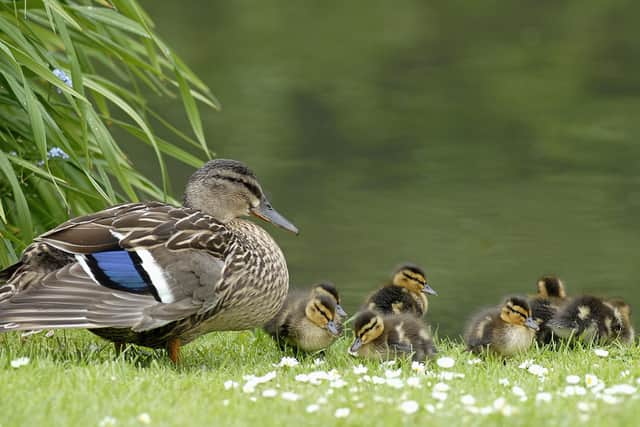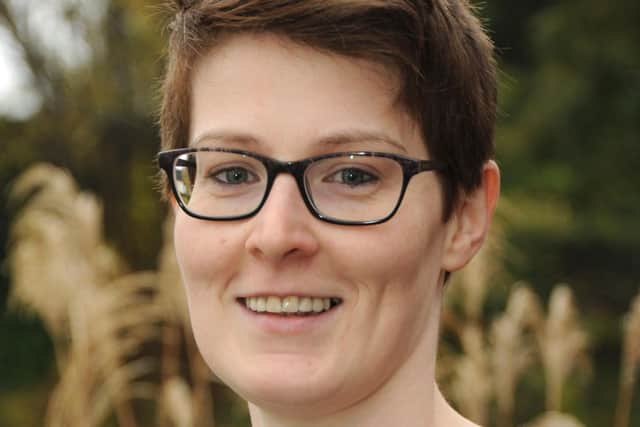Lake ‘primed for disaster’ at Woods Mill in Henfield: do not feed the ducks warns Sussex Wildlife Trust
and live on Freeview channel 276
The conservation charity has warned that excess bread is polluting the lake and harming wildlife.
The charity said that nutrient pollution, which is caused by large amounts of food being thrown into the water, can cause harmful algal blooms, which deplete the lake’s oxygen and kill off aquatic wildlife.
Advertisement
Hide AdAdvertisement
Hide Ad“Excess bread is also harmful to the ducks and can cause malnutrition, disease and bad behaviour,” said Charlotte Owen, conservation officer at Sussex Wildlife Trust.


“We are now seeing a large group of last year’s ducklings constantly roaming the reserve in search of people who might feed them, rather than exhibiting natural behaviour,” she said.
This is detrimental to their welfare and is a nuisance to visitors, she added.
Advertisement
Hide AdAdvertisement
Hide AdThe risk of algal blooms also increases in warm, sunny weather when algae can reproduce exponentially, said the charity, saying that the lake is ‘primed for disaster’ unless people stop throwing food.


Charlotte went on: “Ducks naturally eat a wide range of aquatic insects, snails, worms, pond weed and other vegetation.”
A natural and balanced diet is important during the breeding season, she said, as the birds need to provide their young with the appropriate food.
“There are healthier alternatives that can be fed to ducks (e.g. peas, sweetcorn, chopped greens) but since Woods Mill is a nature reserve, we are asking that no additional food is provided to any of the wildlife on site,” said Charlotte.
Advertisement
Hide AdAdvertisement
Hide Ad“There is plenty of natural food available, and the current situation poses a threat to the wildlife that so many people come here to enjoy.”
Read more: